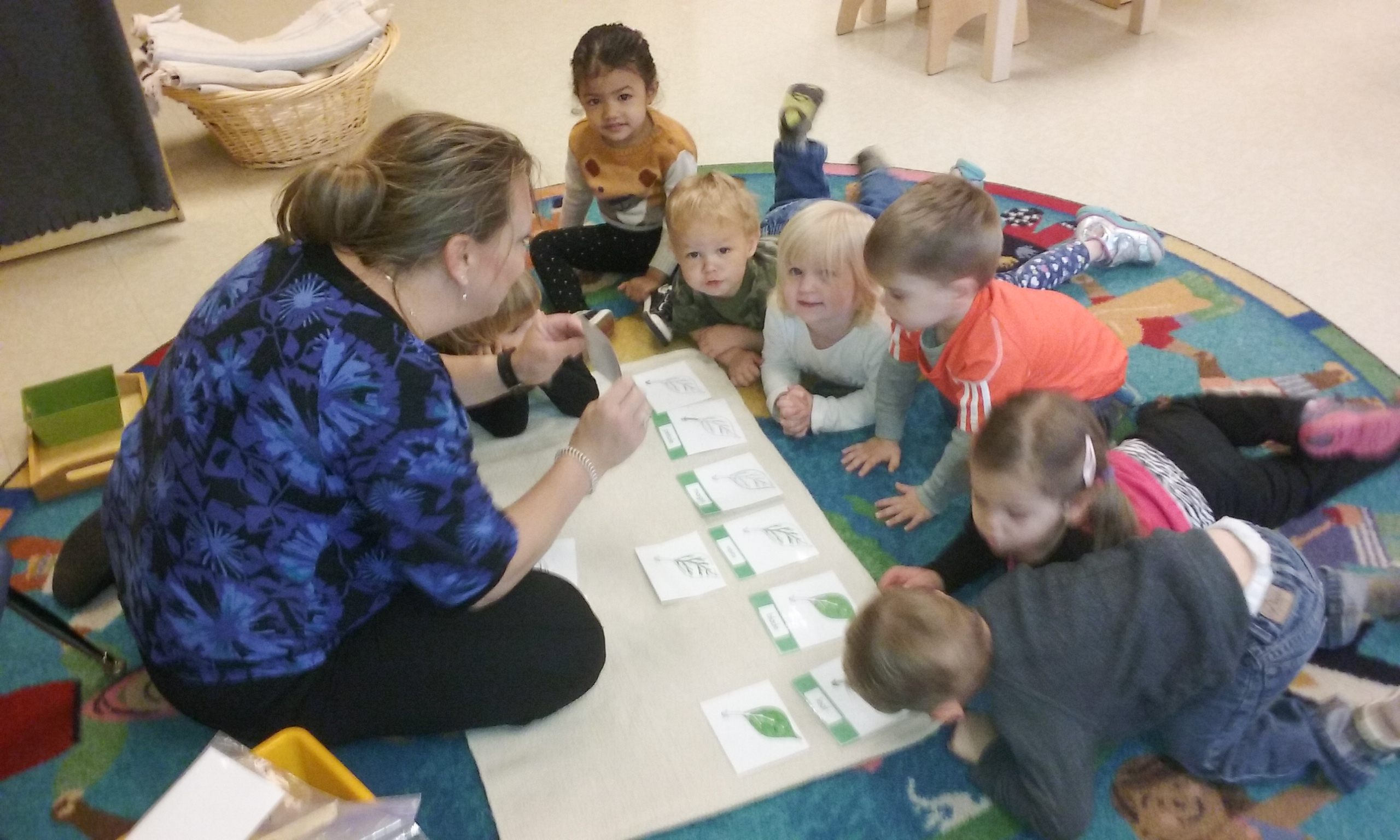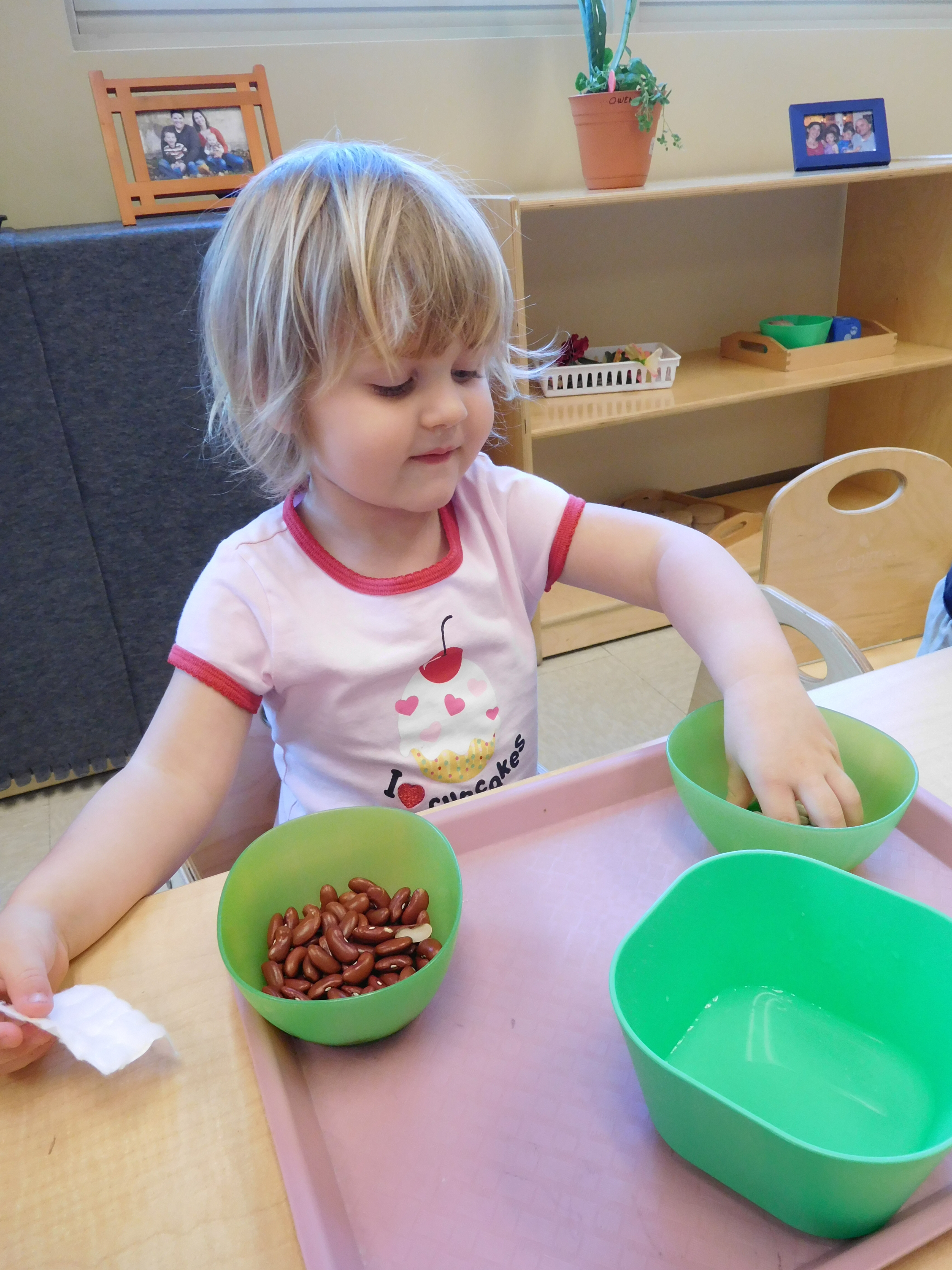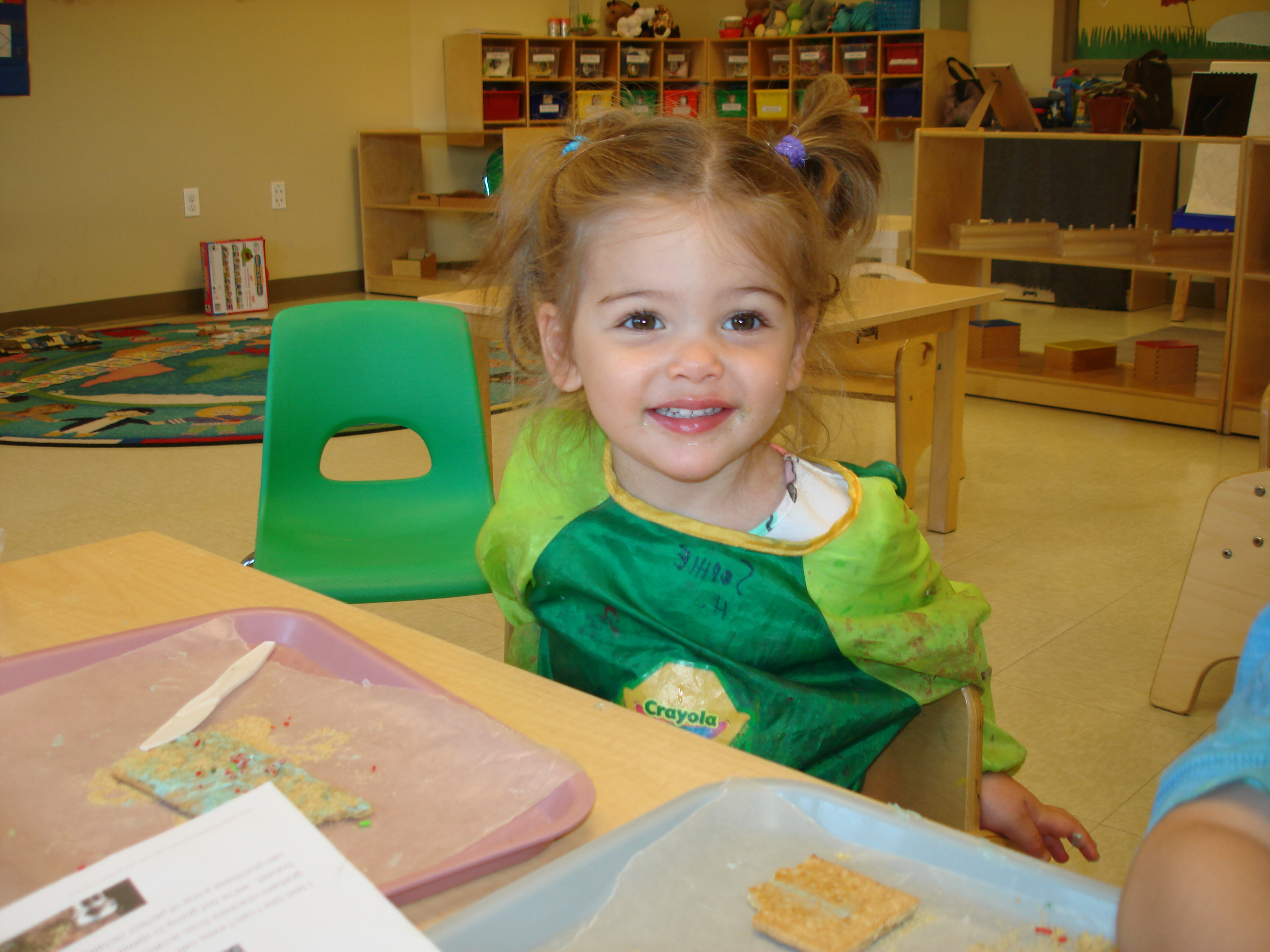The Pre-Primary curriculum introduces several elements that will later be a focus in the 3-6 year Primary program:
Practical life: Precise movements and sequences developed doing practical activities and daily living objectives to help strengthen motor skills and concentration. In practical life they will experience real life situations and activities including: learning to zip, button, mix, and pour liquids. The practical life area includes assisting toddlers in the following as well: eating by themselves, drinking from a cup, grooming and toilet learning, cleaning, caring for plants and animals, food preparation and grace and courtesy.
Sensory: The sensory area allows children to use their senses to learn about the world. Identifying and putting names to the senses of sight, touch, sound, taste, and smell, help children develop formative knowledge of the real which is the basis for understanding abstraction later. Many of these materials are building blocks for further analysis and reasoning in the pre-primary program. In this classroom, a child can learn to distinguish different heights, lengths, weights, colors, sounds, smells, shapes, and textures.
Mathematics: Mathematical abstraction is mastered by manipulating the concrete, building, sequencing, and puzzling.
Language: From a solid basis in spoken language, reading and writing are developed using a variety of tactile materials. Language activities and materials increase vocabulary and conversational skills. Language Enrichment is another important area of learning for the children. These lessons give children the words they need to express themselves. They also associate names to all they see in their environment. The language skills are practiced through a variety of fun and engaging activities such as stories, poems, songs, picture cards, and even daily conversation.
Cultural Studies: World geography and peoples are explored through such materials as maps, flags, water and land forms, presentations and books.
Integrated Art and Music: Visual, audible and expressive arts are incorporated into daily classroom activities. Art and music are approached from a skills based perspective. Children can freely choose cutting, gluing, painting, magic markers, or clay. Listening to music of all varieties helps children develop an ear for music as well as more formal instruction on rhymes, moving to music and practicing duplicating rhythms. These fundamental concepts are introduced to children in the pre-primary program as building blocks to nurture curiosity and instill self confidence in each child.











